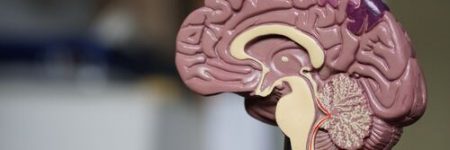Dementia and Alzheimer’s are two terms that are often used interchangeably, but it’s important to know that they’re not the same thing. In this article, we’ll explore the similarities and differences between these two conditions, as well as the most frequently asked questions by users.
What is Dementia?
Dementia is a general term used to describe a decline in cognitive ability that’s severe enough to interfere with daily activities. This includes problems with memory, communication, and reasoning.
Dementia can be caused by many different diseases and conditions, including Alzheimer’s, Parkinson’s disease, Huntington’s disease, and Creutzfeldt-Jakob disease.
What are the causes of Dementia?
There are many different causes of dementia, including:
- Neurodegenerative diseases, such as Alzheimer’s, Parkinson’s disease, and Huntington’s disease.
- Traumatic brain injuries. Brain infections, such as meningitis.
- Disorders of blood circulation in the brain, such as cerebrovascular disease.
- Nutritional deficiencies, such as vitamin B12 deficiency.
- Autoimmune diseases, such as lupus.
- Metabolic diseases, such as Wilson’s disease.
What are the types of Dementia?
There are many different types of dementia, but some of the most common ones include:
- Vascular dementia: caused by problems with blood circulation in the brain.
- Lewy body dementia: caused by the accumulation of proteins in the brain.
- Frontotemporal dementia: caused by the degeneration of brain cells in the frontal and temporal regions.
- Mixed dementia: a combination of different types of dementia.
- Alzheimer’s disease: the most common form of dementia.
What is Alzheimer’s disease?
Alzheimer’s disease is a neurodegenerative disease that causes a progressive deterioration of cognitive function. Symptoms include memory problems, disorientation, difficulty speaking, and changes in personality.
Alzheimer’s disease is the most common cause of dementia in older adults, and it’s estimated to affect more than 5 million people in the United States.
What is the difference between Alzheimer’s disease and dementia?
The main difference between Alzheimer’s disease and dementia is that Alzheimer’s disease is a specific form of dementia. While dementia refers to a general decline in cognitive function, Alzheimer’s disease refers to a specific type of brain damage that causes the loss of memory, reasoning, and other cognitive abilities.
What are the similarities between Alzheimer’s disease and dementia?
Although Alzheimer’s disease is a specific form of dementia, there are many similarities between these two conditions. Both cause a decline in cognitive function, including memory loss and difficulty performing everyday tasks such as dressing or cooking. However, there are some important differences between dementia and Alzheimer’s disease.
Dementia is a broad term that refers to a group of diseases that affect the brain’s ability to function properly. It’s a progressive and chronic condition that affects cognitive abilities such as memory, reasoning, and judgment, as well as communication ability and the ability to perform daily activities.
Alzheimer’s disease is a specific type of dementia, which is the most common form. It’s a neurodegenerative disease that causes a gradual decline in cognitive function. As the disease progresses, brain cells die and brain tissues shrink, resulting in memory loss, language problems, mood changes, and behavioral problems.
Another common type of dementia is vascular dementia, which occurs when there is damage to the blood vessels that supply blood to the brain. This can cause the death of brain cells and loss of cognitive function. Lewy body dementia is another form of dementia that is characterized by the presence of abnormal protein aggregates in the brain, causing cognitive and motor problems.
Mixed dementia is a form of dementia that combines Alzheimer’s disease with other types of dementia, such as vascular dementia. Frontotemporal dementia is a type of dementia that primarily affects the frontal lobe of the brain, causing problems with behavior, personality, language, and cognition.
Creutzfeldt-Jakob disease is a rare and fatal form of dementia that occurs when abnormal proteins accumulate in the brain. It is characterized by a rapid decline in cognitive function, changes in behavior, and movement problems.
Huntington’s disease is a rare genetic disorder that affects cognitive function, as well as motor coordination and muscle movements. Symptoms include a gradual loss of cognitive function, as well as involuntary movements and balance problems.
Treatment for dementia depends on the type and underlying cause of the condition. In some cases, dementia may be reversible if the underlying cause is treated, such as depression or vitamin deficiency. In other cases, treatment focuses on managing symptoms and improving the patient’s quality of life.
In summary, dementia is a broad term that refers to a group of diseases that affect the brain’s ability to function properly. Alzheimer’s disease is a specific type of dementia that is the most common form. There are several other types of dementia, including vascular dementia, Lewy body dementia, mixed dementia, frontotemporal dementia, and Creutzfeldt-Jakob disease.
https://www.medmesafe.com/genetic-test-for-early-detection-of-predisposition-to-alzheimer-s-disease
The genetic test offered by MedMeSafe is designed to detect a potential genetic predisposition to Alzheimer’s. The goal is to detect early predisposition to Alzheimer’s to take preventive and lifestyle measures that can delay or reduce its impact. It is important to note that this genetic test cannot diagnose Alzheimer’s by itself and should always be interpreted by a specialist doctor.
References:
Alzheimer’s Association. (2021). Alzheimer’s and Dementia: Symptoms and Diagnosis.
National Institute on Aging. (2021). Alzheimer’s Disease Fact Sheet. Retrieved from https://www.nia.nih.gov/health/alzheimers-disease-fact-sheet
Mayo Clinic. (2021). Alzheimer’s Disease. Retrieved from https://www.mayoclinic.org/diseases-conditions/alzheimers-disease/symptoms
Clément Destoumieux
PRESENT: + 20 years in complex legal and IT projects in France, the UK and Spain Expert in BioExpert exclusive network of experts in the sectors of life science and investment. Startups coordinator of ANIS (Spanish Association of Health Journalists) Lider ehealth in Asociación Española de Start up Active member of ASEBIO (Leading Spanish Biotech Association) PAST: Sociedad Española Informática de la Salud MBA in Ecole Des Mines – Nantes Master Degree in Ipag Business School in Paris
